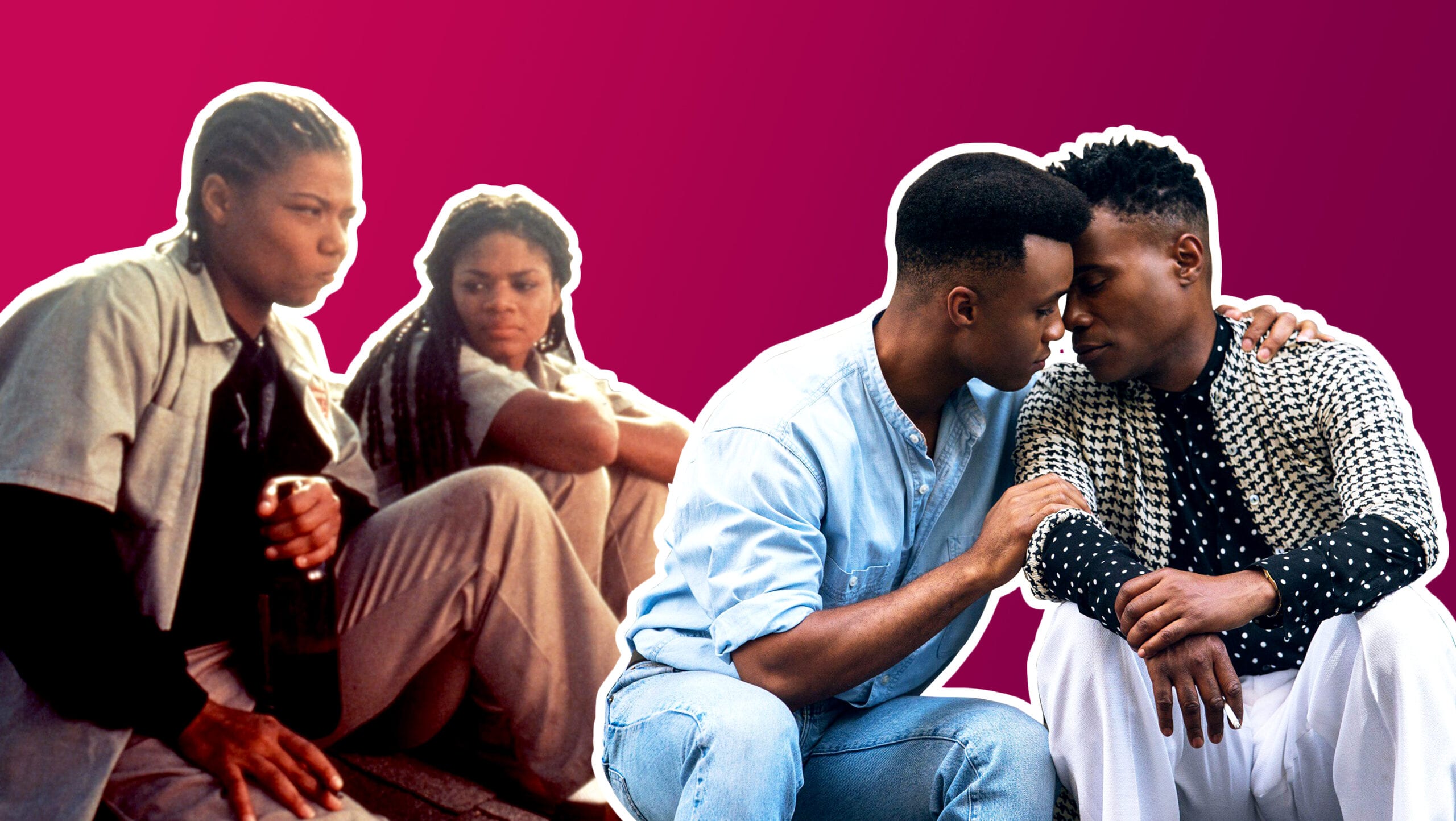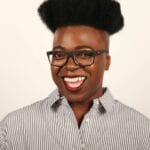I don’t deserve love. Or at least that’s what Hollywood tells me. Scanning the sea of romantic comedies and dramas that have been created since the beginning of cinema, very few of them have a Black queer lead. The majority feature white, straight couples and their admittedly adorable meet-cutes, fairytale romances and white picket fences. But I am not white. I ain’t trying to be Cinderella. And I run in the opposite direction of anything that reminds me of traditional (read: Racist) ideas on Americana and suburbia. So much about being Black, queer, of trans experience or a member of some other marginalized group is about being forced to assimilate and being happy for the crumbs of representation and visibility we do get. But I’m tired of waiting for my chance at love on screen.
Growing up in the late ’90s and early aughts, the purveyors of cinematic romance for my generation included the likes of Ryan Gosling and Rachel McAdams in The Notebook and Renée Zellweger and Colin Firth in Bridget Jones’s Diary, then-contemporary films that followed in the footsteps of Molly Ringwald and Michael Schoeffling in Sixteen Candles, Billy Crystal and Meg Ryan in When Harry Met Sally and Richard Gere and Julia Roberts in Pretty Woman. On the Black side of the industry, there was Nia Long and Larenz Tate in Love Jones, Sanaa Lathan and Omar Epps in Love & Basketball and Gabrielle Union and LL Cool J in Deliver Us from Eva.
Personally, I most connected with Reese Witherspoon’s Elle Woods in Legally Blonde, about a woman who goes to Harvard Law School to chase her college sweetheart who had broken up with her for a more buttoned-up and respectable alternative. Elle ends up developing a passion for law and falling in love with someone else who appreciates her for her true self. Then there’s Halle Berry and Natalie Desselle as Nisi and Mickey in B.A.P.S., two best friends partnered with good-for-nothing men. By the end of the hilarious picture, which includes a failed Heavy D music video audition, deception of an elderly white millionaire and a part-soul food restaurant, part-hair salon business, both women step into their own independence, requiring the men around them to rise to the occasion.
Watching both of these films, I began to craft some semblance of what life could look like for me in terms of love and career. But as I grew into adulthood, I realized that doing so was a foolhardy mission. Not because I couldn’t possibly achieve what these characters had, but because these characters didn’t walk around their fictitious worlds the way I, as a Black queer person, walked around my very real one. I couldn’t truly put my feet in their shoes and imagine life beyond my circumstances because I was wearing a size 12 heel. Now, as I come more into my particular brand of queerness, I look for media representations of Black queer folks in love.
The results, unfortunately, have been fairly dismal. They primarily consist of all of Patrik-Ian Polk’s films, from 2000’s Punks to 2012’s The Skinny to 2014’s Blackbird. There is also the GLAAD-nominated 2015 film Naz and Maalik, about two closeted Muslim teens living in Brooklyn. Then there’s the inclusion of Black queer folks in broader narratives like Spike Lee’s Get on the Bus or F. Gary Gray’s Set It Off. I suppose a shout out must also be given to pictures like Rodney Evans’ Brother to Brother, Q. Allan Brocka’s Boy Culture and Greg Berlanti’s Love, Simon—which, in 2018, became the first film by a major Hollywood studio to focus on a gay teenage romance. But these movies feature Black-white interracial gay couples, and I’m specifically focused on Black love. Obviously Moonlight, Barry Jenkins and Tarell Alvin McCraney’s Oscar-winner, deserves a mention for its representation of Black queer intimacy, but I’d also love to watch a movie with Black queer and trans folks that’s not about our traumas.
“As Black queer and trans people, our imaginations are unmatched. Because many of us haven’t truly seen ourselves reflected in the media we consume.”
There are some bright spots on television, including Polk’s Noah’s Arc, the series DTLA, Pose and Empire (before they wrote Jussie Smollett off the show). And while I’m sure there are some independent films that satisfy my criteria that I haven’t yet discovered, I want a major studio picture that centres Black queer love with the budget and resources of every other love story that makes it to the big screen. I want those who aren’t Black or queer or trans to have to do what I’ve always had to—see myself in another character as opposed to just being seen.
I often say that as Black queer and trans people, our imaginations are unmatched. Because many of us haven’t truly seen ourselves reflected in the media we consume, our bodies and beings are often literal manifestations of our own envisioning of things that be not as though they were. And though I can’t speak for all of us, I’d love to start using parts of my imagination for visions beyond the basics of surviving, going to work and falling in love.
Hollywood, riddle me this: Everybody else is falling in love on screen. Why can’t I?


 Why you can trust Xtra
Why you can trust Xtra


